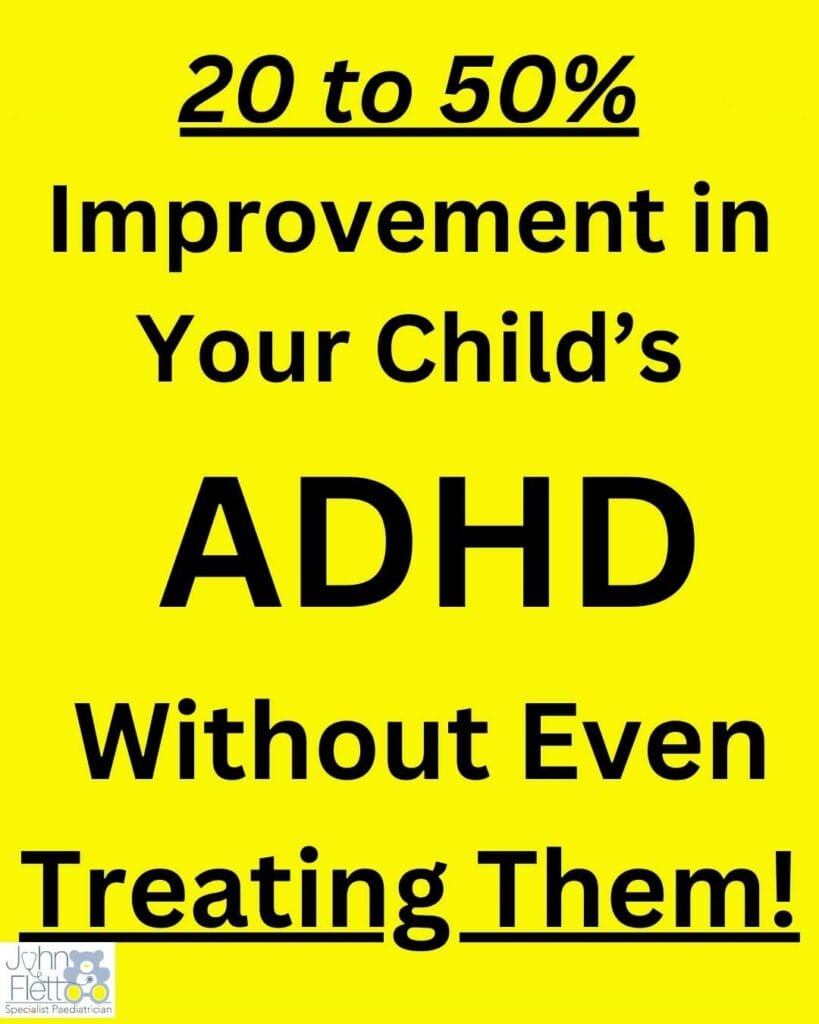“20–50% Improvement in Your Child’s ADHD—Without Even Treating Them!”

If you could improve your child’s ADHD symptoms by 20–50% without medication, therapy, or behavioural interventions for them, would you do it?
Here’s the secret: the key to helping your child with ADHD might not be in what you do for them—but rather in what you do for yourself.
Research shows that when parents with ADHD or mental health challenges take care of their own symptoms, their child’s behaviour, emotional regulation, and academic performance can improve dramatically. Without changing anything about the child’s treatment, simply addressing the parent’s ADHD can create a ripple effect that benefits the whole family.
How Does Managing Your ADHD Help Your Child?
1. Children Learn by Watching You
Kids mirror what they see. If they watch you struggle with disorganisation, impulsivity, or frustration, they’re likely to pick up on those patterns. But if they see you using tools like planners, reminders, and calming strategies, they’ll start to adopt those habits too—without even realising it!
2. A Less Stressed Parent = A Less Stressed Child
ADHD in children is often worsened by family stress. If you’re feeling overwhelmed, anxious, or exhausted, your child is likely to absorb that tension. On the flip side, when parents learn to manage their ADHD—whether through medication, coaching, or therapy—it can reduce stress levels in the home, making it easier for children to regulate their own emotions and behaviour.
3. Stability and Routine Become Easier
Children with ADHD thrive on structure, but parents with ADHD often find consistency difficult to maintain. If you work on improving your own executive function—by using reminders, routines, and external accountability—you’ll create a more predictable environment, which helps your child feel safer and more in control.
What Does the Research Say?
- 20–50% Improvement in ADHD Symptoms
Studies suggest that when parents receive treatment for their own ADHD, children show moderate to strong improvements in areas like emotional regulation, impulsivity, homework completion, and behaviour. The child doesn’t have to be in treatment at all—just the parent’s progress alone leads to measurable benefits. - Better Parent-Child Relationships
When parents address their own ADHD, they often find they’re able to stay calmer, respond more consistently, and avoid emotional outbursts. This improves parent-child interactions and strengthens the bond, making daily life smoother. - Lower Risk of Mental Health Issues for Kids
Untreated parental ADHD is linked to higher rates of anxiety, depression, and behavioural challenges in children. By treating your own ADHD, you’re not just helping yourself—you’re reducing your child’s future risk of struggling with mental health issues too.
What Can You Do Today to Start Seeing These Benefits?
- Get Evaluated for ADHD (If You Haven’t Already!)
If you’ve always struggled with time management, emotional regulation, or focus, it’s worth seeking an ADHD assessment for yourself. Many adults, especially parents, go undiagnosed for years. - Consider ADHD Treatment
Whether it’s medication, therapy, coaching, or lifestyle changes, managing your own symptoms can create a huge shift in your household. Speak to a specialist about what might work best for you. - Build a Daily Routine (For Yourself!)
Even if you’ve tried before and struggled, using tools like phone reminders, calendars, and simple checklists can help keep you on track. The more structured you are, the easier it is for your child to follow suit. - Join a Parent ADHD Support Group
Connecting with other parents who understand the challenges of ADHD can provide insights, encouragement, and practical tips. A great place to start: - Acknowledge Progress (No Matter How Small!)
Changing lifelong ADHD habits takes time. If you manage to stick to your schedule one day out of the week, that’s still progress! Celebrate small wins, and they will build into bigger successes.

Responses